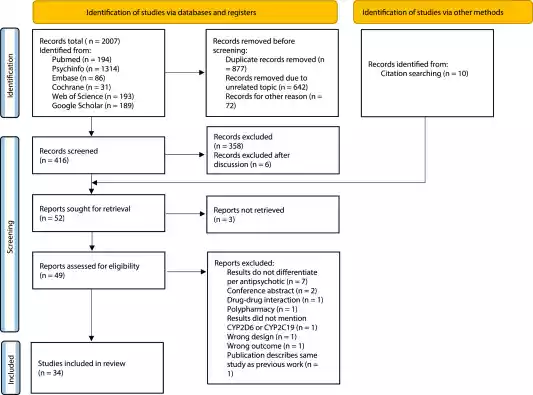
Brand Names: Various around the world
Drug Class: Atypical antipsychotic
ARIPIPRAZOLE Side Effects, Uses, Dosage, and More
What is aripiprazole?
Aripiprazole is an atypical antipsychotic medication used to treat various psychiatric conditions. It is available under different brand names from numerous pharmaceutical companies worldwide. Aripiprazole is primarily prescribed for schizophrenia in adults and adolescents aged 13 and older. It is also used to treat manic and mixed episodes associated with bipolar I disorder in adults and children aged 10 and older. Additionally, aripiprazole may be prescribed as an add-on treatment for major depressive disorder in adults when antidepressants alone are insufficient. In some cases, it is used to treat irritability associated with autistic disorder in children aged 6-17 years.
Mechanism of action: Aripiprazole acts as a partial agonist at dopamine D2 and serotonin 5-HT1A receptors, and as an antagonist at serotonin 5-HT2A receptors.
Chemical structure: Aripiprazole is a quinolinone derivative.
Therapeutic category: Atypical antipsychotic
History of Medicine
Scientists at Otsuka Pharmaceutical in Japan discovered ariprazole throughout the 1980s. Developed in association with Bristol-Myers Squibb, it was approved by the U.S. Food and Drug Administration (FDA) in 2002 for use treating schizophrenia. Its authorized indications grew in following years to include bipolar illness and serious depression. Recent research on ariprazole—including studies by de Brabander et al. on the impact of CYP2C19 and CYP2D6 on side effects, Coustals et al. on its usage in children and adolescents, and Preda and Shapiro’s safety assessment in schizophrenia treatment—will be examined in this review.
Anatomical/therapeutic/chemical (ATC) classification
ATC Code: N05AX12 Title: Aripiprazole Classification: Nervous system; Psycholeptics; Antipsychotics; Other antipsychotics
Indications of aripiprazole
Aripiprazole is prescribed for several psychiatric conditions:
- Schizophrenia in adults and adolescents aged 13 and older
- Manic and mixed episodes associated with bipolar I disorder in adults and children 10 years and older
- Major depressive disorder in adults, as an adjunct to antidepressants
- Irritability linked to autistic disorder in children aged 6-17 years
- Tourette’s syndrome in children and adolescents
Coustals et al. note that “Aripiprazole has proven efficacy for several indications in children and adolescents, including schizophrenia, bipolar disorder, Tourette’s syndrome, and behavioral impairments associated with autism and intellectual disability” (Coustals et al., “Aripiprazole in children and adolescents”).
Contraindications and Precautions
Aripiprazole is contraindicated in patients with known hypersensitivity to the drug or any of its components. Caution is advised in patients with:
- Cardiovascular disease
- History of seizures
- Diabetes or risk factors for diabetes
- History of suicidal thoughts or behavior
- Dysphagia, especially in patients with dementia
Special warnings for the elderly, children and pregnant women
Elderly: Increased risk of cerebrovascular adverse events in elderly patients with dementia-related psychosis.
Children: Limited data on long-term safety in children. Coustals et al. state that “Adverse effects are more important in children and adolescents than adults, particularly weight gain, drowsiness, extrapyramidal effects, and metabolic effects” (Coustals et al.).
Pregnant women: Limited data available. Potential risks to the fetus should be weighed against the benefits of treatment.
Dosage and administration
Dosage varies based on the condition being treated and patient factors. Generally:
- Schizophrenia: 10-15 mg/day for adults, 2 mg/day initially for adolescents
- Bipolar mania: 15 mg/day for adults, 2 mg/day initially for children
- Major depressive disorder: 2-5 mg/day as adjunctive treatment
- Autism-related irritability: 2 mg/day initially for children
What should I do if I miss a dose?
Take the missed dose as soon as you remember. If it’s close to the time for your next dose, skip the missed dose and resume your regular dosing schedule. Do not double up on doses.
Uses of aripiprazole
Beyond its approved indications, aripiprazole is sometimes used off-label for:
- Anxiety disorders
- Obsessive-compulsive disorder
- Post-traumatic stress disorder
- Substance abuse disorders
However, Coustals et al. caution that “off-label prescriptions should be limited, as they appear to account for a significant proportion of aripiprazole use worldwide” (Coustals et al.).
Overdose
Symptoms of overdose may include:
- Vomiting
- Drowsiness
- Tachycardia
- Hypotension
- Extrapyramidal symptoms
Immediate medical attention is crucial in cases of suspected overdose.
Interactions
Drug-drug interactions
Aripiprazole interacts with various medications:
- CYP3A4 inhibitors (e.g., ketoconazole): May increase aripiprazole levels
- CYP3A4 inducers (e.g., carbamazepine): May decrease aripiprazole levels
- CYP2D6 inhibitors (e.g., quinidine): May increase aripiprazole levels
De Brabander et al. highlight that “Variability in hepatic cytochrome P450 (CYP) enzymes such as 2C19 and 2D6 may influence side-effect and efficacy outcomes for antipsychotics” (de Brabander et al., “Influence of CYP2C19 and CYP2D6 on side effects of aripiprazole and risperidone: A systematic review”).
Drug-food interactions
- Grapefruit juice: May increase aripiprazole levels by inhibiting CYP3A4
- High-fat meals: May slightly delay absorption of aripiprazole
Patients should maintain consistent eating habits while on aripiprazole to minimize fluctuations in drug levels.
Aripiprazole Side Effects
Aripiprazole, while generally well-tolerated, can produce various side effects. Preda and Shapiro note that “Aripiprazole is a generally well-tolerated third-generation antipsychotic with low rates of motor side effects and metabolic adverse effects that occur commonly with several alternative antipsychotics” (Preda and Shapiro, “A safety evaluation of aripiprazole in the treatment of schizophrenia”). Common side effects include:
- Nausea and vomiting
- Constipation
- Headache
- Dizziness
- Akathisia (restlessness)
- Insomnia
- Weight gain (although less pronounced than with other antipsychotics)
Coustals et al. emphasize that “Adverse effects are more important in children and adolescents than adults, particularly weight gain, drowsiness, extrapyramidal effects, and metabolic effects, even though the latter may appear less important than with other atypical antipsychotics” (Coustals et al., “Aripiprazole in children and adolescents”).
De Brabander et al. highlight the potential influence of genetic factors on side effects: “Variability in hepatic cytochrome P450 (CYP) enzymes such as 2C19 and 2D6 may influence side-effect and efficacy outcomes for antipsychotics” (de Brabander et al., “Influence of CYP2C19 and CYP2D6 on side effects of aripiprazole and risperidone: A systematic review”).
Rare but Possible Aripiprazole Side Effects
While less common, some patients may experience more severe side effects:
- Neuroleptic malignant syndrome: A potentially life-threatening condition characterized by fever, muscle rigidity, and altered mental status
- Tardive dyskinesia: Involuntary, repetitive body movements
- Hyperglycemia and diabetes: Elevated blood sugar levels
- Orthostatic hypotension: A sudden drop in blood pressure upon standing
- Leukopenia, neutropenia, and agranulocytosis: Reduction in white blood cell count
- Seizures
- Dysphagia: Difficulty swallowing, particularly in elderly patients with dementia-related psychosis
Preda and Shapiro observe that “Akathisia and tremor appear to occur at higher rates with aripiprazole compared to placebo but are still generally uncommon with incidences of 10–11% or less” (Preda and Shapiro).
How to Manage Aripiprazole Side Effects
Managing side effects of aripiprazole often involves a combination of strategies:
- Dose adjustment: Your healthcare provider may adjust the dosage to minimize side effects while maintaining efficacy.
- Timing of medication: Taking aripiprazole at a different time of day may help alleviate certain side effects like insomnia or drowsiness.
- Dietary changes: Maintaining a balanced diet and regular exercise can help manage weight gain and metabolic effects.
- Hydration: Increasing fluid intake can help with constipation and orthostatic hypotension.
- Monitoring: Regular check-ups and blood tests can help detect and manage metabolic changes or blood cell count abnormalities.
- Adjunct medications: In some cases, additional medications may be prescribed to manage specific side effects.
- Gradual discontinuation: If side effects are severe, your doctor may recommend slowly tapering off aripiprazole to minimize withdrawal symptoms.
Coustals et al. stress the importance of monitoring: “At present, post-prescription monitoring is very poor” and suggest that “Aripiprazole use requires clinical and paraclinical monitoring to assess the occurrence of adverse events that may challenge the benefit/risk ratio” (Coustals et al.).
It’s crucial to communicate any side effects to your healthcare provider promptly. They can provide personalized advice and adjust treatment as necessary. Never stop taking aripiprazole abruptly without medical supervision, as this can lead to withdrawal symptoms or worsening of the underlying condition.

Additional Important Information of aripiprazole
Aripiprazole, a third-generation antipsychotic, offers unique pharmacological properties that distinguish it from other medications in its class. Its mechanism of action, involving partial agonism at dopamine D2 and serotonin 5-HT1A receptors, contributes to its efficacy and side effect profile.
Resistance Development
Unlike antibiotics, antipsychotics such as ariprazole usually cause no conventional kind of resistance. But other things might cause therapy failure or reduced responsiveness over time, including non-adherence, changes in brain chemistry, or the advancement of the underlying illness. Long-term ariprazole usage may cause adaptive changes in neurotransmitter systems, therefore influencing its effectiveness.
Preclinical and Clinical Studies
Preclinical research on ariprazole have shown its unique receptor binding profile and its neuroprotective properties. Comparatively to conventional antipsychotics, animal models have showed lower extrapyramidal side effects. Its effectiveness has been shown by clinical studies in bipolar illness, schizophrenia, and as an adjuvant to severe depressive illness.
De Brabander et al. note in their systematic review that “Aripiprazole and risperidone are two commonly prescribed antipsychotics, metabolized primarily through CYP2D6” (de Brabander et al., “Influence of CYP2C19 and CYP2D6 on side effects of aripiprazole and risperidone: A systematic review”). This highlights the importance of considering genetic factors in drug metabolism when prescribing aripiprazole.
Post-authorization studies and Pharmacovigilance
Post-marketing surveillance has provided valuable insights into the long-term safety and efficacy of aripiprazole. Pharmacovigilance efforts have identified rare but serious adverse effects, such as tardive dyskinesia and neuroleptic malignant syndrome. Coustals et al. emphasize that “Severe adverse effects often occur in multiple-prescription settings” (Coustals et al., “Aripiprazole in children and adolescents”), underscoring the need for careful monitoring, especially in patients with complex medication regimens.
Pharmacokinetic characteristics of aripiprazole
Aripiprazole exhibits linear pharmacokinetics within the therapeutic dose range. It is well absorbed, with peak plasma concentrations occurring within 3-5 hours of oral administration. The drug has a long half-life of approximately 75 hours, allowing for once-daily dosing. Aripiprazole is extensively metabolized in the liver, primarily by CYP3A4 and CYP2D6 enzymes.
Current research directions and future perspectives
Current research on aripiprazole focuses on optimizing its use in various psychiatric conditions and exploring potential new indications. Its effectiveness in treating treatment-resistant depression, drug use disorders, and neurodevelopmental disorders is under continuous inquiry. Future directions include the creation of new formulations and delivery techniques meant to improve patient adherence and lower adverse effects.
Effectiveness
Aripiprazole has demonstrated effectiveness in managing positive and negative symptoms of schizophrenia, as well as mood stabilization in bipolar disorder. Its unique mechanism of action contributes to a favorable side effect profile, particularly regarding weight gain and metabolic disturbances. Preda and Shapiro note that “Uniquely, aripiprazole treatment is associated with reduced serum prolactin levels and QTc interval” (Preda and Shapiro), highlighting potential advantages over other antipsychotics.
Comparative efficacy, Systematic reviews and meta-analyses
In terms of effectiveness and tolerability, systematic reviews and meta-analyses of aripiprazole against other antipsychotics have shown differences. With possible benefits in certain side effect areas, ariprazole generally exhibits equivalent effectiveness to other atypical antipsychotics in treatment of schizophrenia. Compared to other second-generation antipsychotics, ariprazole was linked, according a meta-analysis by Huhn et al. (2019) to reduced risk of weight gain and sedation.
In the pediatric population, Coustals et al. report that “Aripiprazole has proven efficacy for several indications in children and adolescents, including schizophrenia, bipolar disorder, Tourette’s syndrome, and behavioral impairments associated with autism and intellectual disability” (Coustals et al.). However, they caution that adverse effects may be more pronounced in this population, emphasizing the need for careful monitoring and individualized treatment approaches.
The systematic review by de Brabander et al. highlights the potential influence of genetic factors on aripiprazole’s side effect profile, particularly the role of CYP2D6 polymorphisms. This emerging area of research may lead to more personalized prescribing practices in the future, potentially optimizing efficacy while minimizing adverse effects.
Scientific Research
Analysis of the Research Study “Influence of CYP2C19 and CYP2D6 on side effects of aripiprazole and risperidone: A systematic review”
This comprehensive systematic review was conducted by Emma de Brabander, Kristian Kleine Schaars, and Therese van Amelsvoort, as part of the PSY-PGx Consortium. Published in the Journal of Psychiatric Research in 2024, this study aimed to investigate the potential influence of genetic variations in CYP2C19 and CYP2D6 enzymes on the side effects of two commonly prescribed antipsychotics: aripiprazole and risperidone.
Methodology
The researchers employed a rigorous methodology, adhering to PRISMA guidelines for systematic reviews. They conducted a comprehensive search across six electronic databases: PubMed, PsychInfo, Embase, Central, Web of Science, and Google Scholar. The initial search yielded 2007 publications, which were systematically screened and filtered based on predefined inclusion and exclusion criteria.
Key Findings
The study revealed several important findings:
- CYP2D6 Focus: All 34 included studies examined CYP2D6, highlighting its perceived importance in antipsychotic metabolism.
- Limited CYP2C19 Research: Only one study genotyped for CYP2C19, indicating a significant gap in research on this enzyme’s role in antipsychotic side effects.
- Mixed Results: The authors note that “Most studies did not report any relationship between CYP2D6 and any side-effect outcome” (de Brabander et al.). However, some studies suggested an association between reduced CYP2D6 activity and increased side effects.
- Heterogeneity: Significant heterogeneity between studies in terms of methodology, sample characteristics, and outcome measures limited the ability to draw definitive conclusions.
Critical Analysis
The study’s strengths lie in its comprehensive approach and rigorous methodology. The authors’ critical examination of the included studies’ quality using the Newcastle-Ottawa Quality Assessment Scale (NOS) and the revised Cochrane Risk of Bias tool adds credibility to their findings.
However, the review also highlights several limitations in the current body of research:
- Sample Size: Many studies had small sample sizes, particularly for non-normal metabolizer groups, limiting statistical power.
- Genetic Testing Methods: Variability in genetic testing methods and phenotype classification across studies complicated comparisons.
- Confounding Factors: The authors note that many studies failed to account for important confounding factors such as polypharmacy, smoking status, and diet.
Implications and Future Directions
The authors emphasize the need for larger, more robust studies to clarify the relationship between CYP2C19 and CYP2D6 polymorphisms and antipsychotic side effects. They suggest that “Large-scale randomized trials with multiple measurements, providing robust evidence on this topic, are suggested” (de Brabander et al.).
The review also highlights the potential clinical implications of pharmacogenetic testing in psychiatry. While current evidence remains mixed, the authors suggest that such testing could potentially optimize dosing and minimize side effects in the future.
Limitations of the Review
While comprehensive, this systematic review has some limitations:
- Language Restriction: Only English-language publications were included, potentially missing relevant studies in other languages.
- Publication Bias: The review did not explicitly address the potential for publication bias, which could affect the overall conclusions.
- Focus on Two Antipsychotics: While aripiprazole and risperidone are commonly prescribed, the findings may not generalize to other antipsychotics.
Conclusion
This systematic review by de Brabander et al. provides a valuable synthesis of current research on the influence of CYP2C19 and CYP2D6 on aripiprazole and risperidone side effects. While the evidence remains inconclusive, the study highlights important areas for future research and underscores the potential of pharmacogenetics in personalizing antipsychotic treatment. The authors’ critical approach and thoughtful recommendations contribute significantly to the field, paving the way for more targeted and effective studies in the future.
Briefly
Aripiprazole is an atypical antipsychotic medication used to treat various psychiatric disorders, including schizophrenia and bipolar disorder. At dopamine D2 and serotonin 5-HT1A receptors, it serves as a partial agonist; at serotonin 5-HT2A receptors, it serves as an antagonist. This unusual method of action helps to explain its side effect profile and effectiveness. Generally speaking, ariprazole is well-tolerated; incidence of certain adverse effects are lower than those of other antipsychotics. Individual reactions will differ, however, and genetic elements might affect its metabolism and potency.
enofmedicines.com
ATTENTION: It is crucial never to take medication without a qualified doctor’s supervision. Always read the Patient Information Leaflet (PIL) with each prescribed medicine. Pharmaceutical companies accurately describe each product’s details, which may be regularly updated, though variations may exist depending on the drug’s composition. This article analyses the active ingredient/s rather than specific brand names containing this generic medicine. Study the instruction leaflet for each preparation you use. Close cooperation with your doctor and pharmacist is vital. Self-administering medication carries serious health risks and must be strictly avoided.
Bibliography
- Coustals, N., et al. “Aripiprazole in Children and Adolescents.” Journal of Child and Adolescent Psychopharmacology, 2021, liebertpub.com
- de Brabander, E., et al. “Influence of CYP2C19 and CYP2D6 on side effects of aripiprazole and risperidone: A systematic review.” Journal of Psychiatric Research, 2024, sciencedirect.com
- Preda, A., and B.B. Shapiro. “A safety evaluation of aripiprazole in the treatment of schizophrenia.” Expert Opinion on Drug Safety, 2020, tandfonline.com
FAQ
What is aripiprazole used for?
Aripiprazole is primarily used to treat schizophrenia and bipolar disorder. It's also approved for major depressive disorder as an add-on treatment, and for irritability associated with autism in children. Off-label uses may include anxiety disorders and substance abuse. Always consult a doctor for proper diagnosis and treatment.
What are the common aripiprazole side effects?
Common side effects of aripiprazole include nausea, vomiting, constipation, headache, dizziness, akathisia (restlessness), and insomnia. Weight gain may occur but is generally less pronounced than with other antipsychotics. Individual responses vary, so it's crucial to discuss any side effects with your healthcare provider.
What is the typical aripiprazole dosage?
Aripiprazole dosage varies based on the condition being treated and individual factors. For schizophrenia, adults typically start with 10-15 mg daily. Bipolar disorder treatment often begins with 15 mg daily. Dosages may be adjusted over time. Always follow your doctor's prescription and never adjust the dose without medical supervision.
Why take aripiprazole in the morning?
Taking aripiprazole in the morning is often recommended to minimize sleep disturbances, as it can cause insomnia in some people. However, the best time to take it depends on individual response and side effects. Some patients may benefit from evening dosing. Consult your doctor to determine the most suitable schedule for you.
What are the potential aripiprazole side effects sexually?
Aripiprazole may cause sexual side effects, including decreased libido, erectile dysfunction, or difficulty achieving orgasm. Unlike some other antipsychotics, it generally doesn't increase prolactin levels, which can affect sexual function. If you experience sexual side effects, discuss them with your healthcare provider for potential management strategies.
What is the aripiprazole drug class?
Aripiprazole belongs to the drug class of atypical antipsychotics, also known as second-generation antipsychotics. It has a unique mechanism of action as a partial agonist at dopamine D2 and serotonin 5-HT1A receptors. This contributes to its efficacy in treating various psychiatric conditions with potentially fewer side effects than older antipsychotics.
What are the brand names for aripiprazole?
Aripiprazole is marketed under various brand names worldwide. In the United States, common brand names include Abilify, Abilify Maintena (long-acting injectable), and Aristada. Generic versions are also available. Your doctor or pharmacist can provide information about specific brands available in your region.
Is aripiprazole 5mg considered a low dose?
Aripiprazole 5mg is generally considered a low to moderate dose, often used as a starting dose or for maintenance therapy. The appropriate dosage depends on the condition being treated and individual factors. Some patients may respond to lower doses, while others may require higher doses. Always follow your doctor's prescription and discuss any concerns about dosage.




